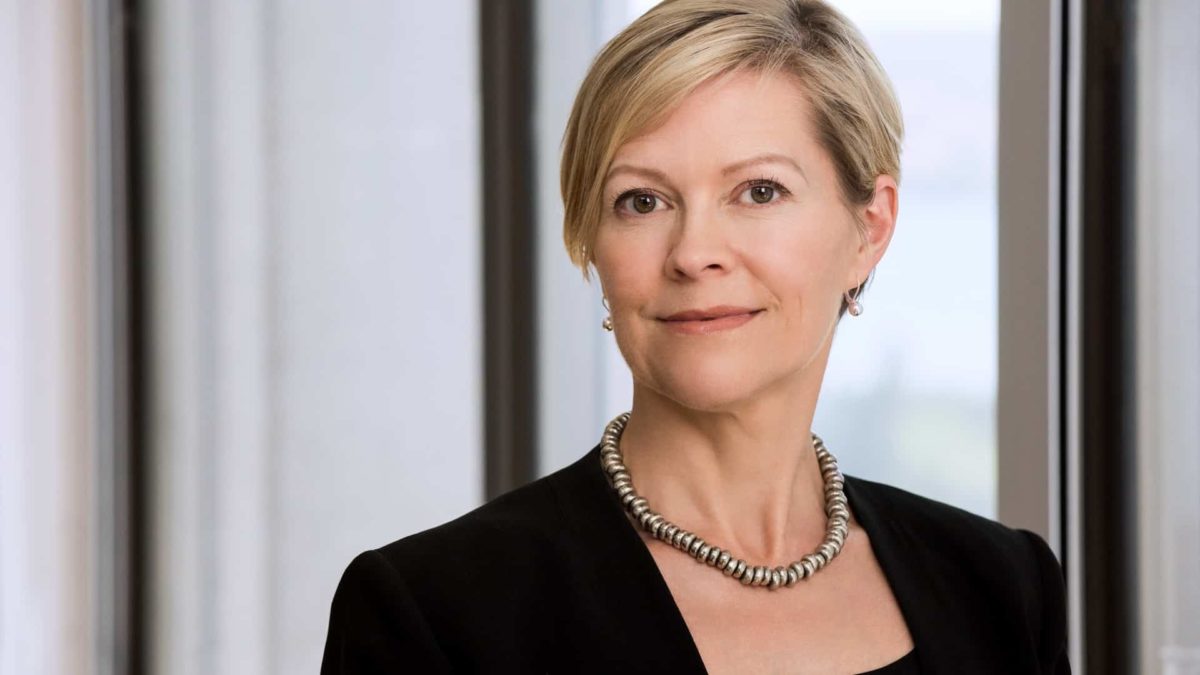Ask A Fund Manager
The Motley Fool chats with fund managers so that you can get an insight into how the professionals think. In this edition, Fidelity International portfolio manager Kate Howitt tells why the finance industry is so male-dominated.
The Motley Fool: You were recently named among the top 30 female fund managers in the world and the only Australian. Congratulations.
Kate Howitt: Thank you. That's an annual ranking that they've been doing for a while now. I've been on the list 4 [consecutive] times now.
It's of all female portfolio managers across both equities and bonds, so it's a really broad set. Citywide has the broadest rankings. I think a couple of years ago [the selection pool] was 1,200 women. It's gone up a bit since then, which is good.
MF: Why do you think it's so important for your industry, which obviously is very male-dominated, to have diversity?
KH: Well, I think it's incontrovertible now that diversity of thought is better for most endeavours. And I don't think anyone would claim that women or men are necessarily better investors, but when you have a broader perspective in the team, it's just going to get better results [for] clients.
Then you can flip it around and say, it's a really interesting job. And it's an important role because the role is not only building retirement savings for Australians, but it's also the efficient allocation of capital. And so, women should have a role in both of those processes, and women should have the option to do a job that is just so fascinating and challenging.
MF: What would be a quick solution to get more girls and women involved in the finance world?
KH: Part of it is the industry needs an image makeover, right?
I have a teenage daughter, and when young women are setting out to think about what they want to do with their lives, a lot of them think, 'I want to do something that… is inherently meaningful and good for the community'. And finance has too much of a Wolf of Wall Street image.
And there's a sense that finance is something you go into if you're greedy. Whereas I think of finance as solving problems for the community. It's intermediating between people who have excess funds and need a return, and people who have great investment opportunities but need the seed capital. Putting those two together, that kind of community problem solving is really what finance is about.
But we don't talk about it that way, we don't think about it that way, we don't market it to high school girls that way. So, that's one part of the issue — to have teenage girls not cringe at the thought of telling their friends they want to go into finance. That'd be a start.
Then you've got all the issues that would help with one of the big problems, which is the pipeline, which heavily skews male. Then you can move on to secondary challenges, like retention and promotion.
We've got two women on our team. We've just promoted them to portfolio managers. One of them has just been on maternity leave, the other one's just about to go on maternity leave.
I was promoted to portfolio manager. I called my chief investment officer to confess that I was pregnant for the second time… I was, honestly, a bit embarrassed about it, which is a terrible thing to say.
MF: It shouldn't be that way, should it?
KH: Yeah. But she said, "Well, we were going to promote you anyway, so when you come back from maternity leave, you'll be a portfolio manager."
There's that overlap, these critical periods in the career of an aspiring portfolio manager, overlap with those early childbearing and child raising years.
We've got a small team and yet we are about to have our 11th maternity leave that we've carried in that analyst team. We're fine with it, but the industry as a whole needs to get better at getting women through those critical, tricky years.
MF: I'm keen to talk ASX shares with you, but just before we do that, how did you start in the industry yourself?
KH: I did a liberal arts degree, which was fascinating until I got about halfway through and realised that I was going to be qualified to work in a restaurant. And I was in the US, so I had a massive student debt to pay off on top of it.
So I went to do an MBA at the University of Chicago, which is, of course, the home of the Efficient Market Theory. There's not too many active fund managers who come out of Chicago.
I started off at the Boston Consulting Group with guys like [Woolworths Group Ltd (ASX: WOW) chief] Brad Banducci, and [Latitude Group Holdings Ltd (ASX: LFS) chief] Ahmed Fahour, and then I moved from that into AMP Ltd (ASX: AMP) in corporate finance. And then moved on to investor relations, which was my first exposure.
After a couple of years, I started thinking it would be more fun to ask the questions than answer the questions. So I moved from the corporate side of AMP into AMP Capital, into one of their teams.
MF: It was a bit of a journey, wasn't it? It wasn't straight from school.
KH: Yeah, a lot of the women I know of my vintage, similarly, they kind of fell into finance.
A lot of them studied a language and then got hired by a bank, and then they went from there, that kind of thing. I think when you are an industry that's relying on women kind of accidentally falling into your industry, it's no wonder we're not kind of finding enough of them.









